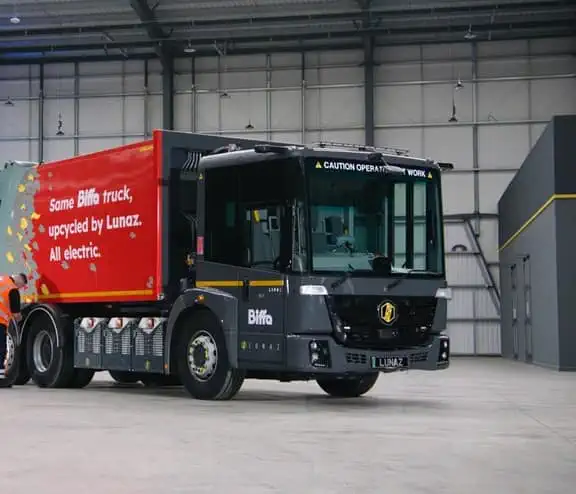
Tackling climate change
Committed to reducing carbon emissions.
Net zero no later than 2050
Climate change is a global emergency that requires action now. We are committed to science-based targets and have a deliverable strategy based on existing technology and realistic deployment. We have already reduced our CO2 emissions by 70% since 2002 and are on track to reduce our emissions further. New, emerging technology and process innovations coming down the line will help us realise net zero by 2050.

We will deliver a further 50% reduction in carbon emissions by 2030 from our 2019 baseline. We aim to have net zero emissions by no later than 2050.
Michael Topham
Biffa CEO
Plans to 2030
Changes we are making to improve the environment
Electric vehicles
We have rolled out the UK’s largest fleet of electric refuse collection vehicles designed to reduce air pollution levels in the city of Manchester. The 27 strong fleet supports Manchester’s objective to be Net Zero by 2038.
Community projects
Biffa Award is an environment fund managed by Royal Society of Wildlife Trusts (RSWT), which utilises landfill tax credits donated by Biffa Waste Services. One of the aims of Biffa Award is to support projects that will be of lasting environmental benefit.
What's next?
-
Target to 2030
Our 2030 targets are based on existing technology and realistic deployment,
- 50% reduction in CO2 emissions
- 20% increase in collection route efficiency
- Cease buying fossil-fuelled vehicles
- Buy 100% renewable electricity
- Develop our renewable energy capability
-
Target to 2040
- No fossil-fuelled vehicles
- Heavy plant (e.g. compactors, shovels, excavators) to reach net zero emissions
- All site fuels to be replaced by net zero emissions electricity